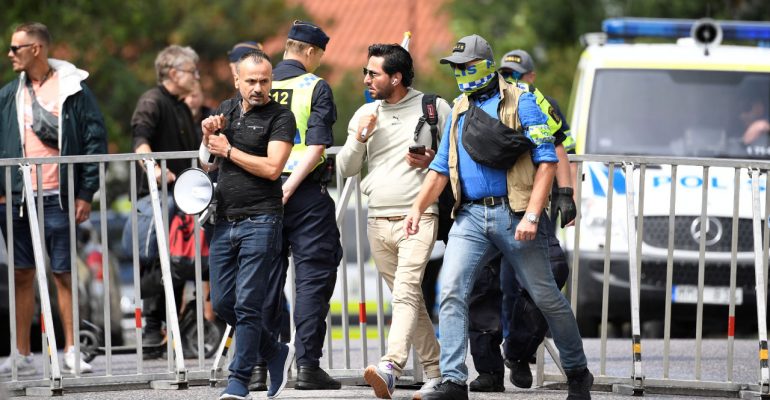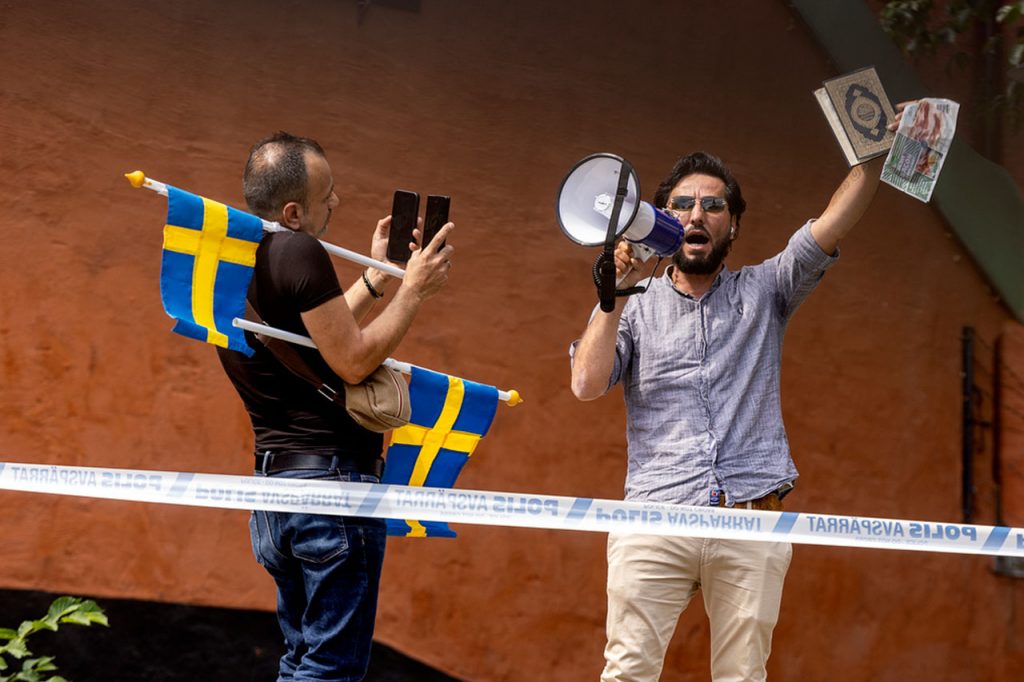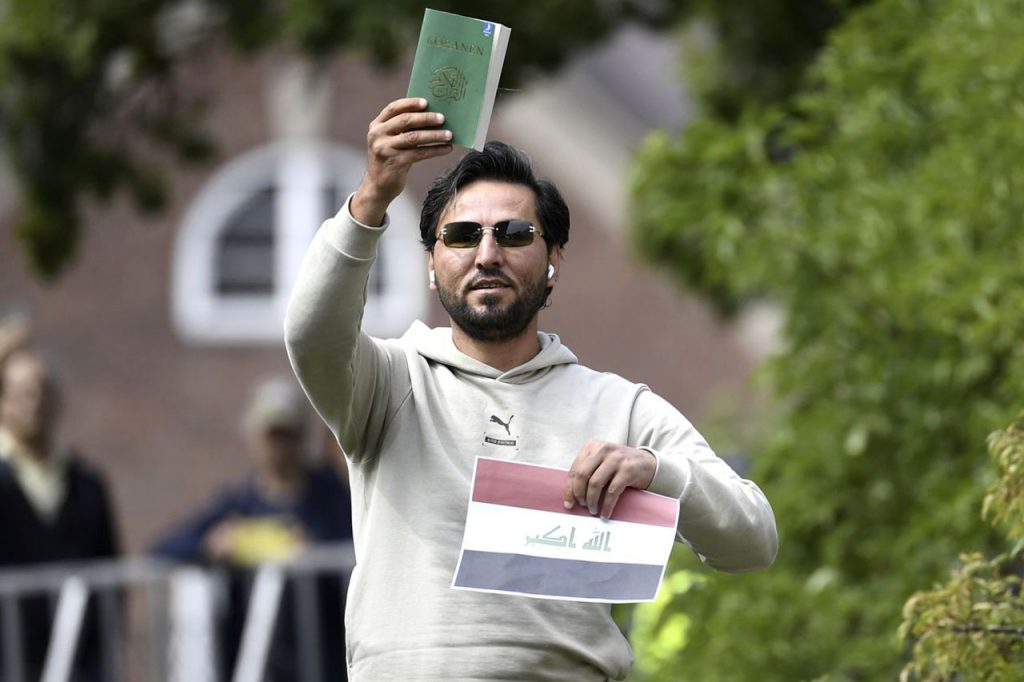Sweden puts Quran burners on trial for hate crimes
September 1, 2024 2024-09-03 8:12Sweden puts Quran burners on trial for hate crimes

Sweden puts Quran burners on trial for hate crimes
Prosecutors say the men ‘treated the Quran in a manner intended to express contempt for Muslims because of their faith’.
Swedish prosecutors have charged Salwan Momika and Salwan Najem with “offenses of agitation against an ethnic or national group” for burning copies of the Quran during protests in the summer of 2023.
The incidents, which occurred on four separate occasions, sparked widespread outrage in Muslim countries and strained Sweden’s relations with nations in the Middle East.
According to Senior Prosecutor Anna Hankkio, the two men desecrated the Quran by burning it and making derogatory remarks about Muslims, with one incident taking place outside a mosque in Stockholm.
“Both men are prosecuted for having on these four occasions made statements and treated the Quran in a manner intended to express contempt for Muslims because of their faith,” Hankkio said in a statement.
“In my opinion, the men’s statements and actions fall under the provisions on agitation against an ethnic or national group, and it is important that this matter is tried in court,” she added.

Evidence against the men primarily consists of video recordings of the events. Najem, through his lawyer Mark Safaryan, denied any wrongdoing, claiming that his actions were protected by the Swedish Constitution and the permit granted for the demonstration.
Momika, a Christian refugee from Iraq, had previously stated that he wanted to protest against the institution of Islam and ban its holy book.
The Quran burnings led to increased security measures in Sweden, with the country’s intelligence service Sapo raising the threat level after the incidents made Sweden a “prioritized target” for terror attacks.
The events also prompted Denmark to pass legislation in December 2023, making it illegal to burn copies of the Quran in public places. Sweden is currently considering legal options that would allow police to reject demonstration permits due to national security concerns.
The Organization for Islamic Cooperation (OIC) called on its member states to take appropriate political and economic measures against Sweden, Denmark, and other countries that allow the burning of the Muslim holy book.
The OIC warned that this act, described as an “act of aggression that spreads hatred and contempt for religions and threatens global peace, security, and harmony,” must be stopped.

As a result of the Quran burnings, the United Nations Human Rights Council approved a resolution on religious hatred and bigotry with only the United States and the European Union abstaining due to a conflict with their positions on freedom of expression.
The Swedish government has also condemned the Quran burnings while attempting to uphold the country’s constitutionally protected freedom of speech and assembly laws.
Earlier this month, prosecutors charged Swedish-Danish right-wing activist Rasmus Paludan with the same crime over a 2022 protest in the southern city of Malmo, which also included burning the Quran.
In October 2023, a Swedish court convicted a man of inciting ethnic hatred with a 2020 Quran burning, the first time the country’s court system had tried the charge for desecrating Islam’s holy book.
Prosecutors have previously said that under Swedish law, the burning of a Quran can be seen as a critique of the book and the religion, and thus be protected under free speech.
However, depending on the context and statements made at the time, it can also be considered “agitation against an ethnic group.”
Source: Morocco World News







